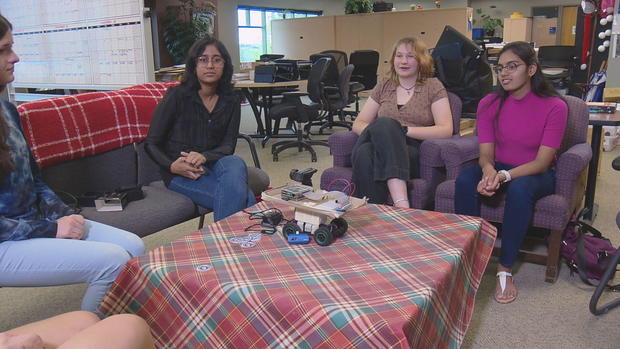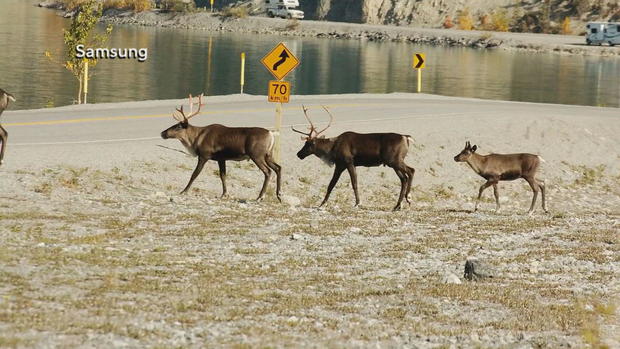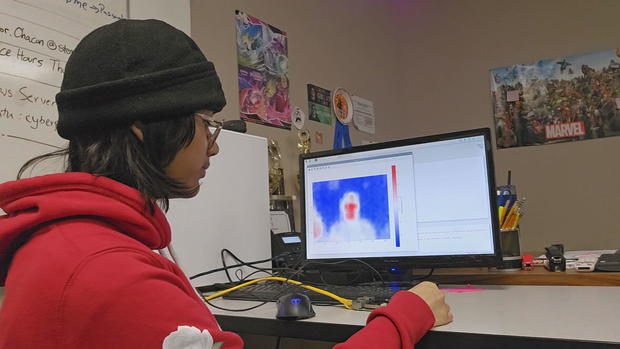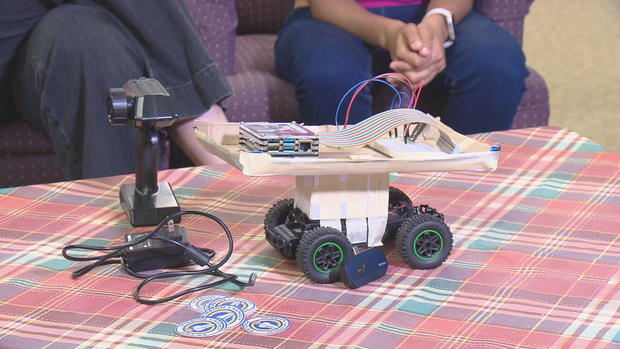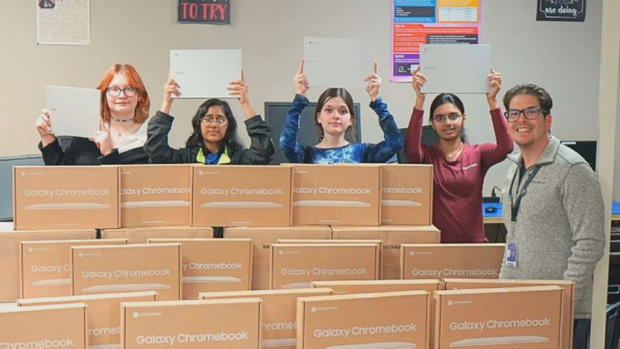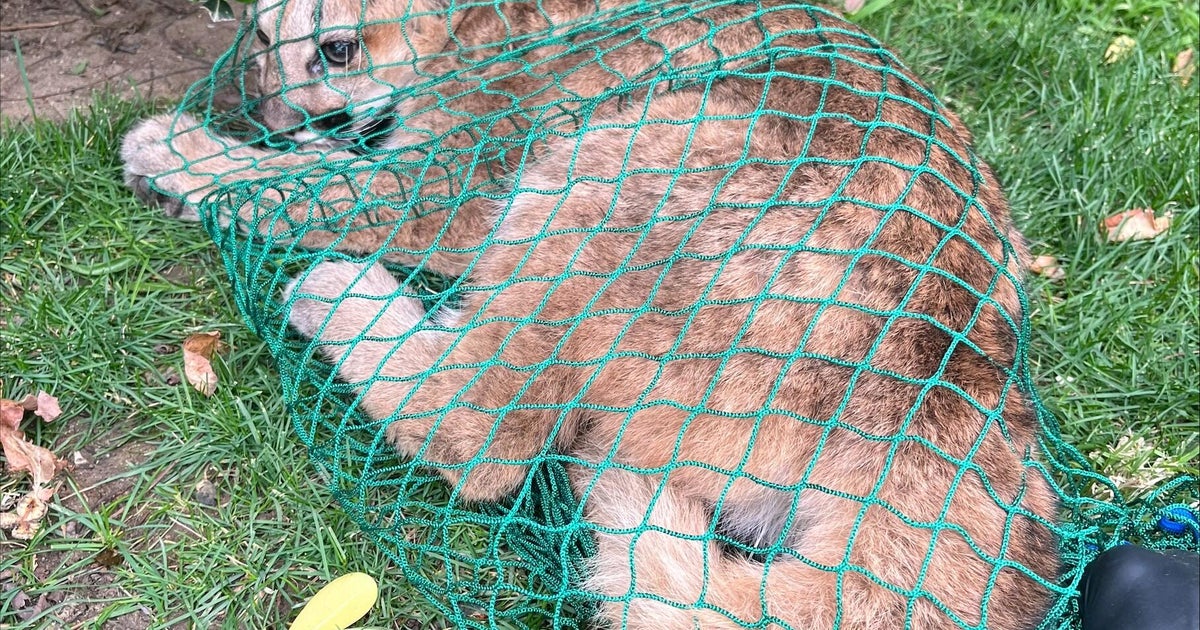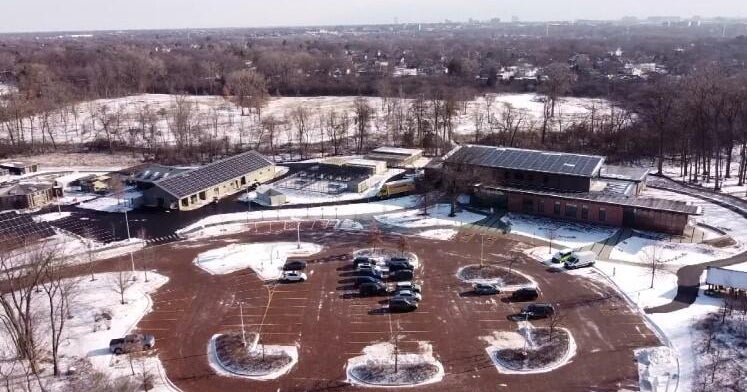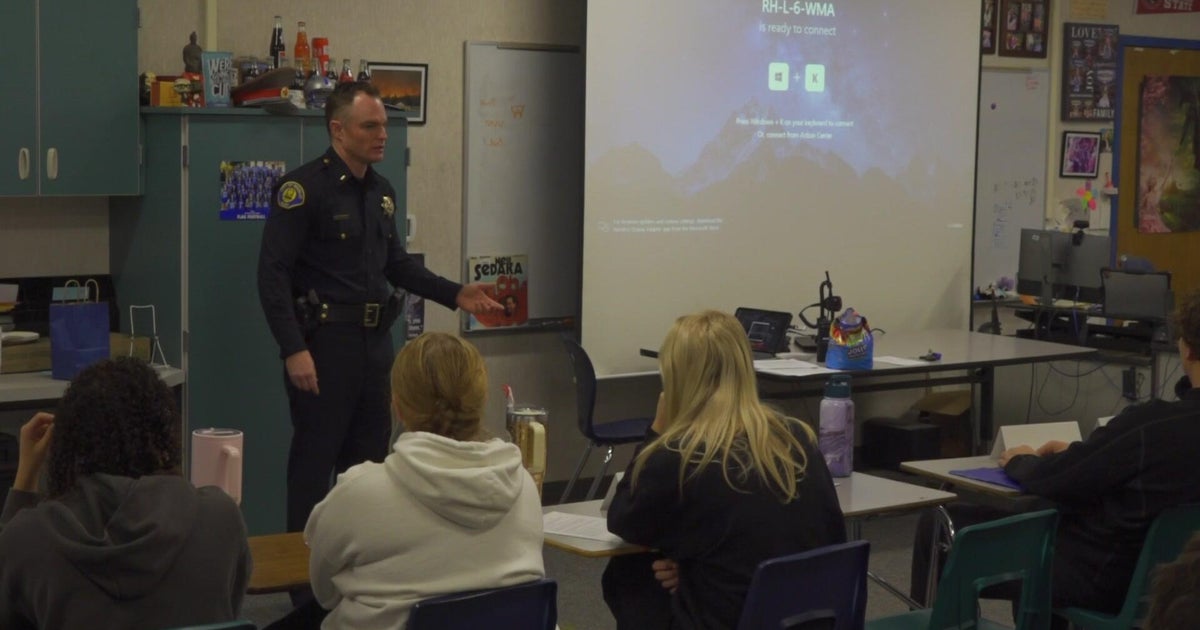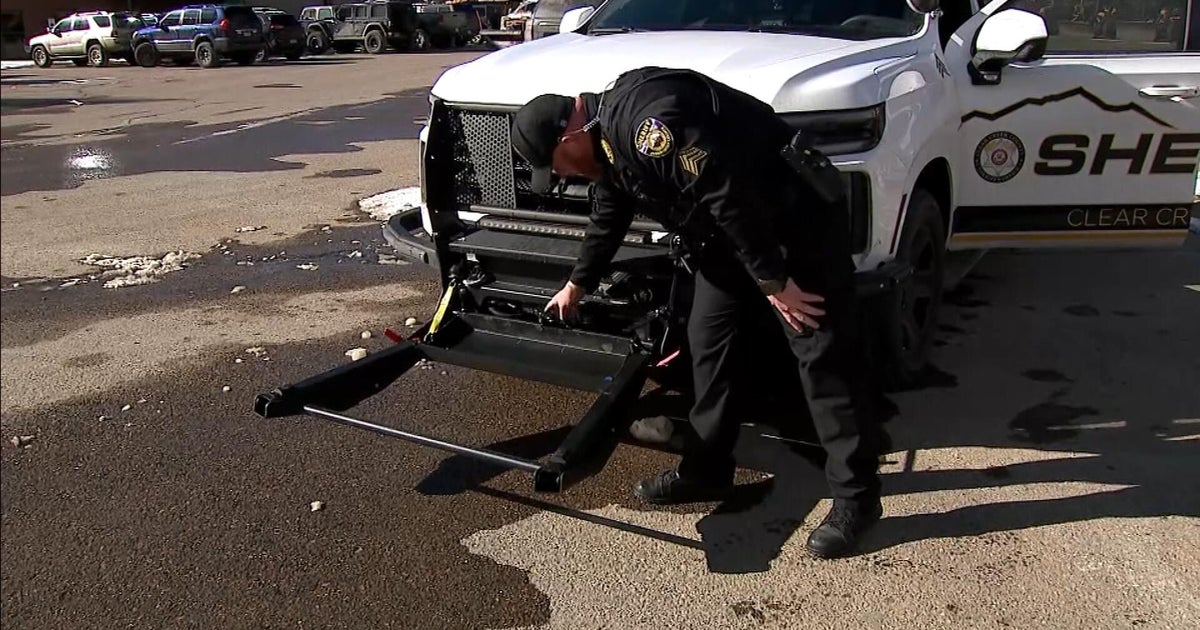Team of female Colorado STEM students invents wildlife detection device
An all-female team of teens from STEM School Highlands Ranch has invented a device they say will save both human and animal lives.
Every year, the Colorado Department of Transportation reports nearly 4,000 collisions between drivers and wildlife. By their estimates, it costs Colorado drivers $80 million annually.
"That's our ultimate goal, to engineer something that anyone and everyone can put on their cars," said Siddhi Singh, a rising junior at STEM School Highlands Ranch.
Singh is often one of the only girls in her classes.
"I felt kind of isolated," said Singh.
So when the opportunity came to lead a team for the "Samsung Solve for Tomorrow" contest, Singh chose fellow students Dhriti Sinha, Robyn Ballheim, and Bri Scoville.
"Working together as a group of girls makes us feel more powerful, like, come on, we're girls, how cool is that," said Singh.
The team named themselves "The Rubber Duckies," after a debugging method used by programmers. They chose "animal-car collisions" as the problem they wanted to solve for the contest.
"Generally, what Samsung asks you to do is to find a problem in your community that's affecting your community and then try to use technology to solve the problem," said team sponsor Tylor Chacon, who teaches computer science at STEM School Highlands Ranch.
The girls worked for months to invent a wildlife detection device.
"The current plan is to utilize an infrared camera to image the surroundings in front to detect animals and warn the driver when animals are in the environment so they can pay more attention, slow down, and be much more likely to avoid a collision," said Scoville, rising junior and Rubber Duckies member.
The infrared camera can detect body heat, even in the dark or poor weather conditions.
"The use of infrared is definitely new and something that hasn't been done before," said Singh.
An algorithm tracks heat and motion, and AI machine learning classifies the data and recognizes it as an animal.
"When a detection is made, we have a signal sent to a smaller device inside the car that will warn the driver with a combination of light and sound," said Ballheim, a rising sophomore and Rubber Duckies member.
The team consulted with experts in the auto industry and at CDOT.
Singh says CDOT has stationary wildlife sensing devices that don't work as well as the agency would like. The team hopes their device will be portable and more effective.
"We spoke with someone at Audi, they said that there are huge hopes for this device if we're able to get this to work," said Singh.
The Rubber Duckies even tested their prototype on their school's therapy dog. The device successfully recognized the animal and made a sound.
Their invention won the competition for Colorado and advanced to nationals. As a prize, they received thousands of dollars in equipment to assist with furthering their prototype.
The team lost at nationals, but it's not stopping the girls from continuing their work, even during summer break.
"Right now, we're currently working on redeveloping our prototype and really trying to involve more machine learning into our prototype," said Singh.
"We're currently planning our next prototype to be similar to a dash cam where it's mounted on the windshield," said Scoville.
"I've been looking into Bluetooth systems to see if we can get the device to emit Bluetooth signals and have it connect to the car," said Sinha, a rising junior and Rubber Duckies member.
The team plans to enter the Samsung Solve for Tomorrow competition again next year and refine the same device. But their goals go beyond winning.
"There's really no limit to how far the project could go, I think it's within sight to fix this problem," said Chacon.
The Rubber Duckies hope the technology will one day be incorporated into car manufacturing.
"We also hope that we can encourage other girls to innovate like us," said Scoville.
Teenage girls who are too young to drive, are now paving the way for safer roads and more women in STEM.
"These girls are laying the groundwork for somebody to look up to them later on and say, 'I wanna do that, I wanna be that, look what they did, I can do that too,'" said Chacon

